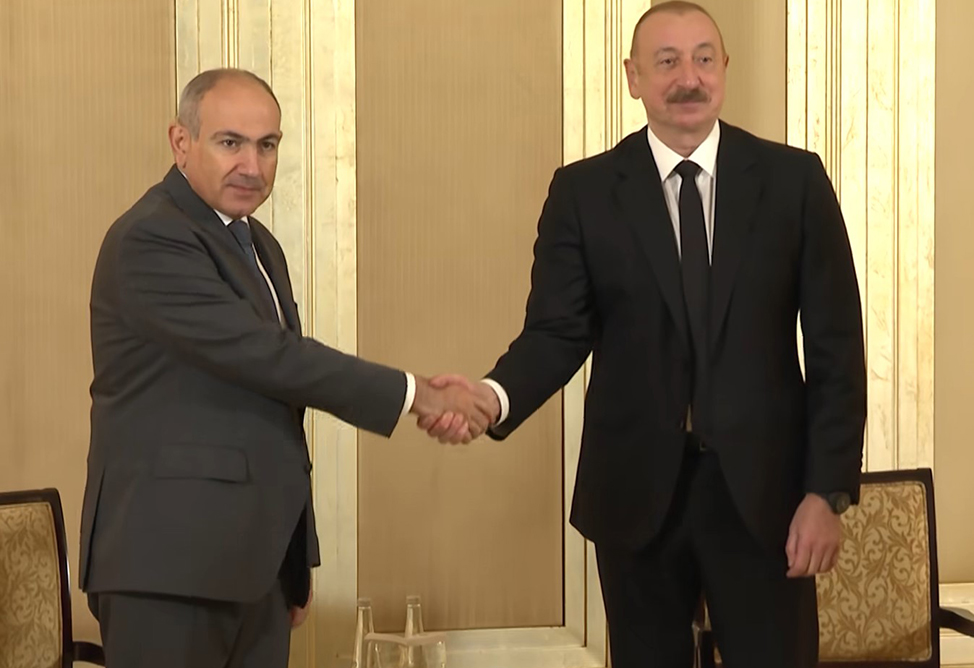Kazimirov: world community should aim at preventing military actions in Nagorno-Karabakh conflict zone
27.06.2009,
02:59
The priority of the international community is to prevent military actions and settle Nagorno-Karabakh conflict by peaceful political means, Vice-Chairman of the Association of Russian diplomats, former Russian Co-Chair of OSCE Minsk Group Vladimir Kazimi
YEREVAN, June 26. /ARKA/. The priority of the international community is to prevent military actions and settle Nagorno-Karabakh conflict by peaceful political means, Vice-Chairman of the Association of Russian diplomats, former Russian Co-Chair of OSCE Minsk Group Vladimir Kazimirov said.
“Any new war for centuries to come will implant the hostility between Armenian and Azerbaijani peoples. It cannot be allowed,” Kazimirov told journalists in Yerevan Friday.
The former mediator pointed out that the priorities of Armenians and Azerbaijanis are different in the conflict settlement. The priority of the Armenian side is the status of Nagorno-Karabakh, whereas the priority of Azerbaijan is to liberate territories lost during the war.
“What should the international community do, what should it think and what should it do - give preference to Armenian or Azerbaijani priorities? I am sure that we should not go into these issues that should become the subject of difficult and long-suffering negotiations and should be solved by Armenia and Azerbaijan themselves. The sides should solve the issues of both the status and the withdrawal of the troops from the occupied territories,” Kazimirov said.
According to Kazimirov, the priority of the international community should be to prevent military actions between the sides to the conflict as the world has already experienced how acute this conflict can be during the military actions in 1991-1994.
The international community should first of all try to prevent a new bloodshed so that a path could be made toward historical reconciliation between the Armenian and Azerbaijani peoples, Kazimirov said.
Nagorno-Karabakh conflict started in 1988 when Nagorno-Karabakh with prevailingly Armenian population declared its withdrawal from Azerbaijan.
On December 10 1991, just a couple of days before the collapse of the Soviet Union, a referendum was held in Nagorno-Karabakh in the presence of international observers where 99.89% of the population voted for full independence from Azerbaijan.
In response, Azerbaijan launched a large-scale war against Nagorno-Karabakh. Active operations were ceased on May 12 1994 by signing a cease-fire agreement that has been maintained since then. The military operations led to about 25-30,000 deaths; a million of people had to leave their homes.
Since 1992 negotiations have been held on peaceful settlement of the conflict under the auspices of the OSCE Minsk Group co-chaired by the USA, Russia and France. –0—
“Any new war for centuries to come will implant the hostility between Armenian and Azerbaijani peoples. It cannot be allowed,” Kazimirov told journalists in Yerevan Friday.
The former mediator pointed out that the priorities of Armenians and Azerbaijanis are different in the conflict settlement. The priority of the Armenian side is the status of Nagorno-Karabakh, whereas the priority of Azerbaijan is to liberate territories lost during the war.
“What should the international community do, what should it think and what should it do - give preference to Armenian or Azerbaijani priorities? I am sure that we should not go into these issues that should become the subject of difficult and long-suffering negotiations and should be solved by Armenia and Azerbaijan themselves. The sides should solve the issues of both the status and the withdrawal of the troops from the occupied territories,” Kazimirov said.
According to Kazimirov, the priority of the international community should be to prevent military actions between the sides to the conflict as the world has already experienced how acute this conflict can be during the military actions in 1991-1994.
The international community should first of all try to prevent a new bloodshed so that a path could be made toward historical reconciliation between the Armenian and Azerbaijani peoples, Kazimirov said.
Nagorno-Karabakh conflict started in 1988 when Nagorno-Karabakh with prevailingly Armenian population declared its withdrawal from Azerbaijan.
On December 10 1991, just a couple of days before the collapse of the Soviet Union, a referendum was held in Nagorno-Karabakh in the presence of international observers where 99.89% of the population voted for full independence from Azerbaijan.
In response, Azerbaijan launched a large-scale war against Nagorno-Karabakh. Active operations were ceased on May 12 1994 by signing a cease-fire agreement that has been maintained since then. The military operations led to about 25-30,000 deaths; a million of people had to leave their homes.
Since 1992 negotiations have been held on peaceful settlement of the conflict under the auspices of the OSCE Minsk Group co-chaired by the USA, Russia and France. –0—



